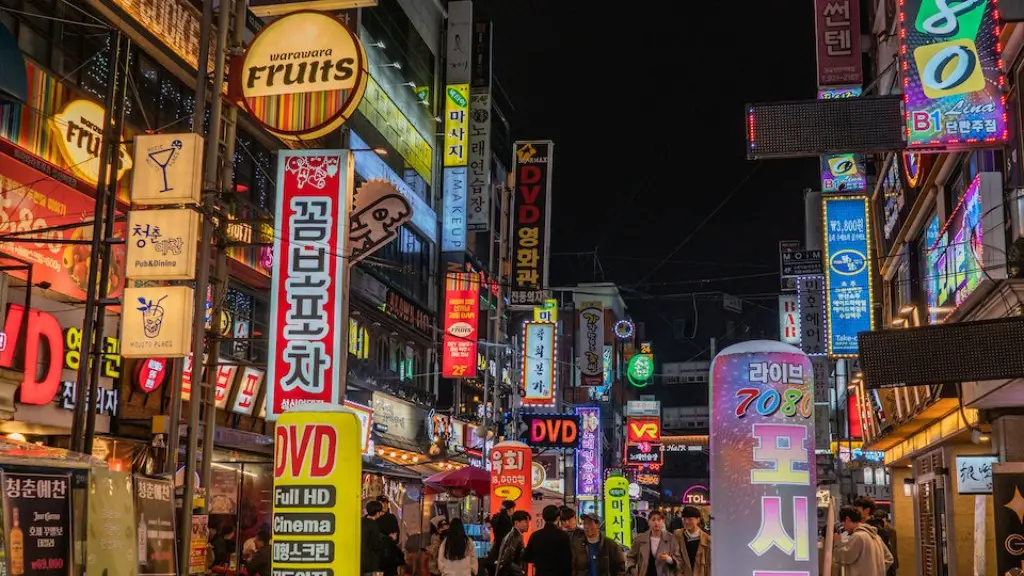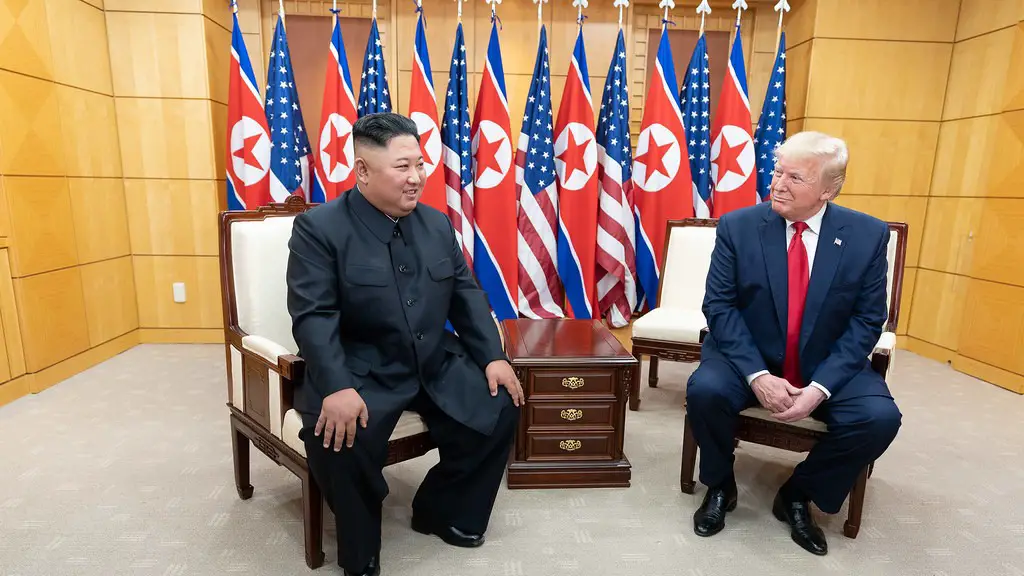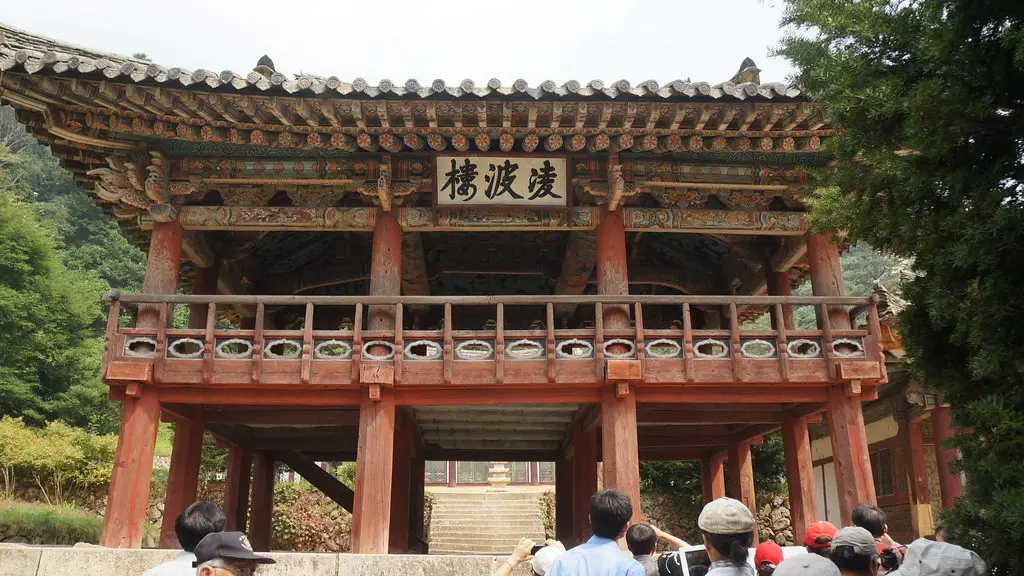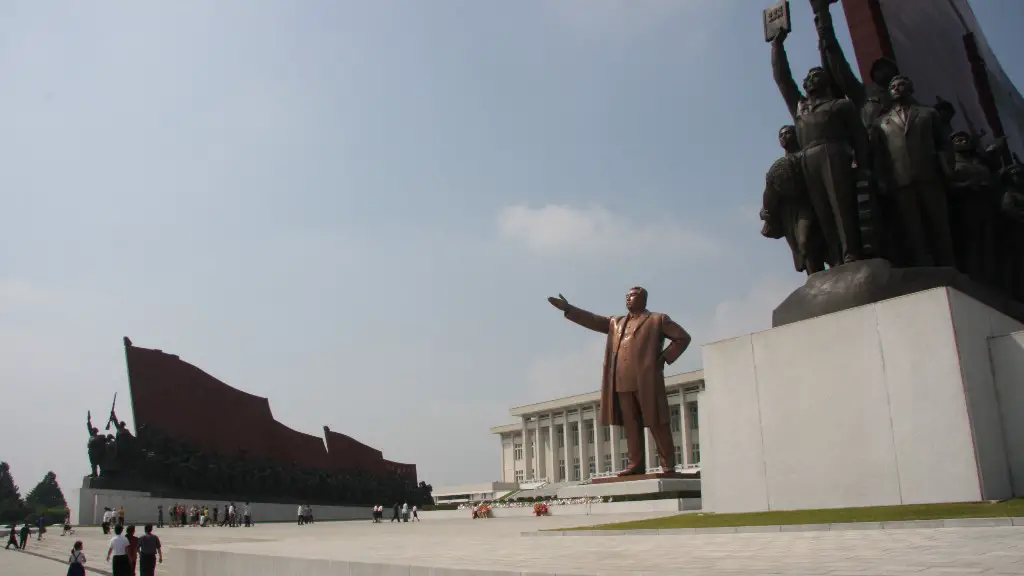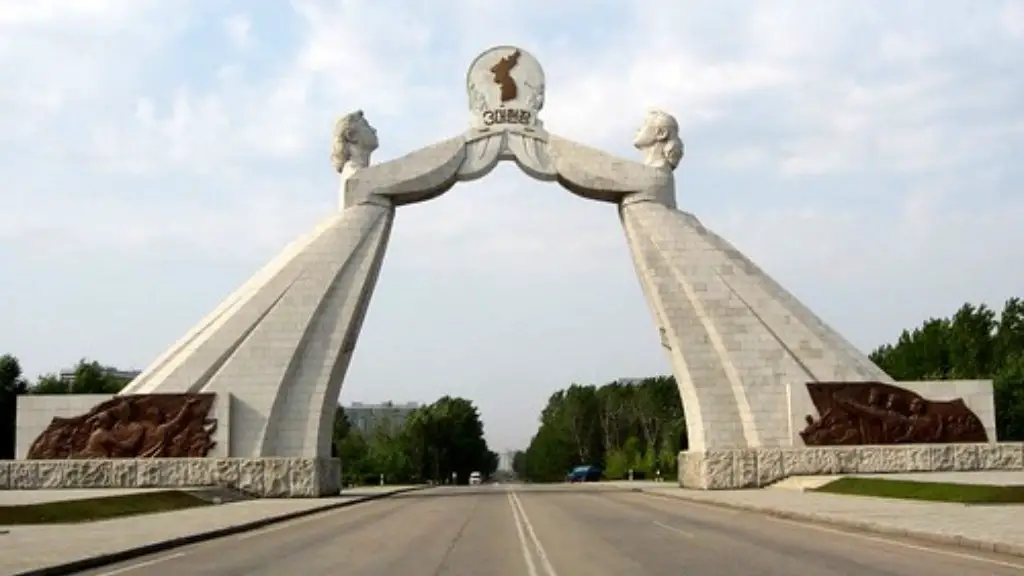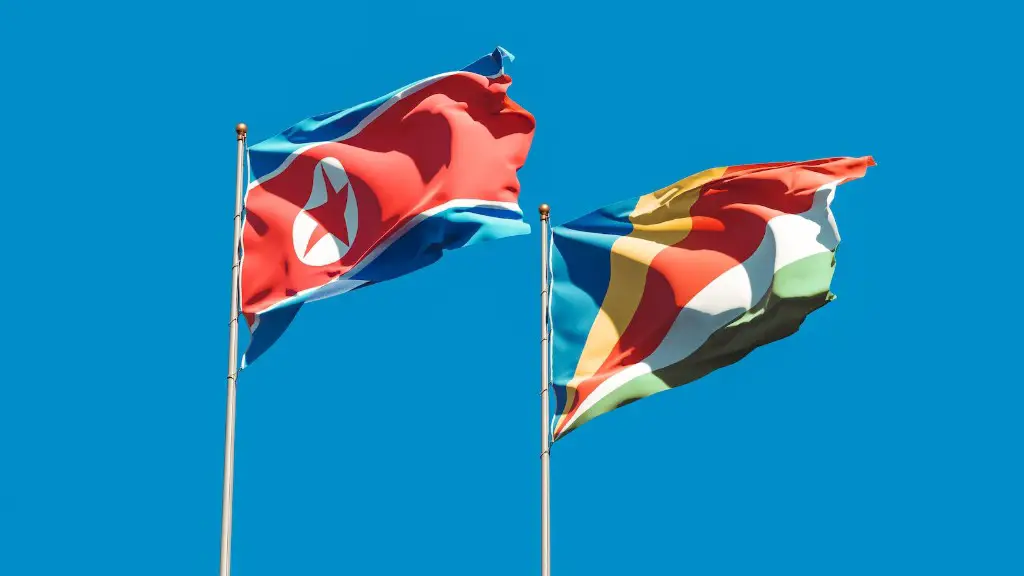Corruption is a serious concern in North Korea, and it has resulted in economic devastation and poverty for much of the population in the country. The regime led by Kim Jong-Un is seen as a threat to its citizens and the world, as it routinely cracks down on those who defy it. North Korea has been the subject of many reports about its human rights abuses and the systematic corruption of its government. In 2018, the United Nations published a report detailing the widespread impunity enjoyed by the North Korean government and its officials. It is estimated that corruption accounts for as much as 25-30 percent of North Korea’s GDP.
Systematic Corruption
The North Korean system of government is built upon systematic corruption. The government has tried to isolate itself from the rest of the world, and it tightly controls access to information and the media. This has enabled the government to conceal its corruption and to keep its citizens in the dark. However, despite its efforts, many reports have exposed the regime’s widespread corruption.
The North Korean political system is highly centralized and corruption is widespread. According to a 2018 report from the United Nations, corruption is rampant at all levels of society, from the government and state-owned enterprises to private businesses.
The government and its officials are the main beneficiaries of corruption. They use their power and influence to enrich themselves, utilizing various mechanisms such as accepting bribes, kickbacks, and patronage networks. Many institutions in North Korea, such as banks and state-owned enterprises, are expected to pay bribes or kickbacks to government officials in order to secure contracts and other favors. This money then goes towards financing the lavish lifestyles of North Korean officials and their families.
The money generated through corruption is used to support the regime’s ambitions, such as its nuclear program. It also enables the government to maintain its power and to repress its citizens, as the regime is able to buy the loyalty of officials and citizens alike.
Exploitation of State Resources
Another way in which the North Korean regime profits from corruption is through the exploitation of state resources. The regime has a monopoly over the country’s scarce resources, such as food and fuel, and it uses these resources to control and reward its citizens. The regime sells food and fuel on the black market to foreign buyers, using the money to fund its nuclear and missile programs. This exploitation of state resources has resulted in widespread poverty and malnutrition in North Korea.
The North Korean regime has been able to benefit from corruption and exploit state resources because of its tight control over the country. The regime has absolute control over the press and the media, meaning that it is able to suppress any undesirable information. This has enabled the regime to conceal its corruption and keep it from the public. Furthermore, the regime has the power to regulate or manipulate economic activity, meaning that it can influence the flow of resources and money.
The regime has also been able to control its citizens through a combination of fear and bribery. It has used its power to ensure that its citizens remain loyal to the regime and toe the party line. This has enabled the regime to maintain its oppressive rule over the country and to benefit from corruption.
Corruption as a Tool of Oppression
Corruption in North Korea is more than just an economic issue – it is used as a tool of oppression by the regime. By using corruption to control its citizens and repress any criticism of the regime, the North Korean government is able to maintain its hold on power and perpetuate its oppressive rule. This is why the regime has been so successful in preventing outside information from entering the country and in silencing dissent.
Furthermore, the regime has been able to exploit its citizens by using corruption. By exploiting its citizens’ limited access to resources and money, the regime has been able to benefit financially and further its own ambitions. This is why it is estimated that corruption accounts for as much as 25-30 percent of North Korea’s GDP.
The North Korean regime has been able to benefit from corruption due to its tight control over the country. This has enabled it to keep its corruption hidden from the public and to use corruption as a tool of oppression. Ultimately, corruption has enabled the regime to maintain its power and further its own ambitions at the expense of its citizens.
Impact of Sanctions on Corrupt Activities
The international community has imposed sanctions on North Korea in an attempt to pressure the regime to end its nuclear program and its human rights abuses. However, it is unclear whether these sanctions have had an impact on the regime’s corrupt activities.
While some experts argue that the sanctions have had a significant impact on North Korea’s ability to engage in corrupt activities, others suggest that the sanctions have actually enabled the regime to strengthen its grip on power. After all, the sanctions have limited North Korea’s access to foreign currency, making it more reliant on the black market and corrupt activities to sustain itself.
The sanctions have had an impact on North Korea’s access to resources. This has resulted in a shortage of basic goods in the country, leading to widespread poverty and malnutrition. Additionally, the sanctions have limited the regime’s access to foreign currency, making it more reliant on illicit activities such as smuggling and extortion.
While the sanctions are seen as a necessary step to pressure the regime to end its nuclear program, some experts argue that they are not enough to pressure the regime to end its corrupt activities. They argue that the regime is able to maintain its power and oppress its citizens due to its tight control over the country, and that only a more comprehensive strategy can pressure the regime to end its corruption.
International Pressure on North Korea
The global community has responded to North Korea’s regime and its rampant corruption by imposing sanctions, but some experts believe that this is not enough to pressure the regime to end its oppressive rule. They argue that a more coordinated and comprehensive strategy is necessary to address the root causes of the regime’s corruption and to pressure the regime to end its corruption.
Such a strategy should focus on pressuring the regime to end its human rights abuses and to open itself up to the rest of the world. Furthermore, international organizations should work to improve economic and political transparency in North Korea, and to ensure that the regime is held to the same standards of accountability and rule of law as the rest of the world.
Moreover, the international community should work to promote economic development and financial stability in North Korea, to reduce the regime’s reliance on corrupt activities. Finally, international organizations should provide North Korea with foreign aid and technical assistance to support its economic growth and development.
Ultimately, the international community must take a more comprehensive approach to pressuring the North Korean regime to end its corruption and oppressive rule. If the global community fails to act, the regime will continue to exploit its citizens and further its own ambitions at their expense.
Progress in Encouraging Change in North Korea
Despite the global community’s efforts to pressure the regime to end its corruption, the North Korean government has remained largely unmoved. The regime continues to suppress dissent and opposes any attempts at reform or change.
However, recent developments suggest that there may be progress in encouraging change in North Korea. In 2018, North Korea began to open up to the rest of the world and allow foreign investment in the country. This has had a positive impact on the North Korean economy and has given some hope to the people of North Korea.
Additionally, the regime has taken steps to increase transparency and reduce corruption. For example, the government has begun to crack down on corruption in state-owned enterprises and has implemented measures to improve the accountability of government officials.
That said, it remains to be seen whether these efforts will be enough to reduce the regime’s reliance on corruption and to improve the lives of the people of North Korea. Further reforms and increased pressure from the international community are necessary for the country to make lasting improvements.
Analysis of North Korea’s Corrupt Structure
As the preceding analysis has demonstrated, North Korea’s widespread corruption has had a devastating effect on the country and its citizens. The regime has used its power to enrich itself and to maintain its oppressive rule. It has done so by exploiting its citizens and relying on corruption to sustain its power.
In order to address North Korea’s corruption problem, the global community must take a coordinated, comprehensive approach to pressuring the regime to end its corruption and oppression. Furthermore, more must be done to promote economic and political transparency in North Korea and to ensure that the regime is held accountable for its actions.
Ultimately, the goal of the international community should be to encourage North Korea to reform its system of government and to end its oppressive rule. Only then will North Korea’s citizens be able to benefit from the country’s wealth and enjoy a life free from poverty and oppression.
North Korean Refugees & Human Rights
Since the end of the Korean War, the people of North Korea have suffered under the oppressive rule of the regime. Human rights abuses are rampant and access to basic necessities, such as food and medicine, is severely limited by the government.
Furthermore, the regime’s oppressive rule has led to the rise of a large number of North Korean refugees. Many of these refugees have fled the country, risking their lives in search of a better future. However, they often face harrowing conditions and severe human rights abuses in their attempts to escape North Korea.
The international community must take action to protect the human rights of North Korean refugees and to ensure that they are protected from persecution. This includes providing access to safe refuge and to the essentials of life, such as food and medical care. Additionally, it is essential that the international community ensures that North Korean refugees have access to legal representation and to the right to seek asylum.
In the end, it is essential that the global community takes measures to protect the human rights of North Korean refugees and to ensure that the regime is held accountable for its actions. Only then will the people of North Korea be able to enjoy a life free from oppression and poverty.
International Community & North Korea
The international community has a responsibility to address the situation in North Korea and to pressure the regime to end its corruption and oppressive rule. This can only be done through a comprehensive, coordinated approach that focuses on pressuring the regime to end its human rights abuses and to open itself up to the international community.
The global community must also take action to promote economic development and social progress in North Korea, and to ensure that the regime is held to the same standards of accountability and rule of law as the rest of the world. Additionally, the international community should provide North Korea with foreign aid and technical assistance to support its economic growth and development.
Ultimately, the international community must take a stronger stance against North Korea’s regime and its corruption. Only through a coordinated, comprehensive
